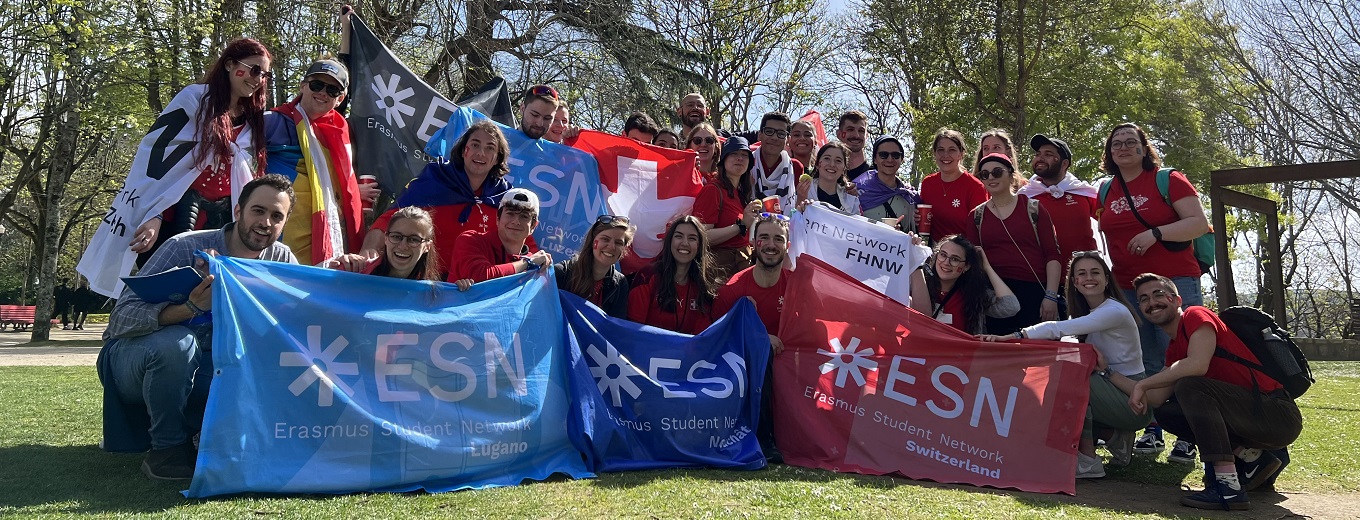The new ESNsurvey provides an insight into the experience and needs of Erasmus+ students with pertinent recommendations for policy makers.
Since 2005, the Erasmus Student Network (ESN) conducts a volunteer-led annual survey of thousands of students who are participating in an international study or training programme. The main goal of the ESNsurvey is to monitor the implementation of the mobility experience of students in higher education with a special focus on current issues related to student exchange, the needs of the participating students as well as the impact the experience has on their lives.
The 14th edition of the survey was published on 12 December 2022, including 10’691 responses collected in Q1 of 2021 on study or work mobility that took place between 2018 and 2021. While most of the participants were supported by Erasmus+ (86% of participants for study and 10% for traineeships), other mobility programmes were also included in the survey (3.5%). 65% of the participants were women, compared to only 32% men. The large majority of participants are between 20 and 24 years old. This edition of the survey is divided into four chapters: i. experience, ii. support, iii. impact, and iv. effect of covid-19.
The chapter on the mobility experience includes questions on motivation, learning and integration in the local community. The main motivation to study abroad is to experience different learning environments, meet new people and live and learn in another country. For students in study programmes, the advancement of their career prospects or their professional network were less important factors. However, students on traineeships were more strongly motivated by career development (cf. figure 18 on page 35 of the survey). While the overall satisfaction with the exchanges is high, only 58% of participants felt integrated in the local community (during the pandemic, this number dropped to below 50%). Nevertheless, 75% of participants were satisfied with their social life. This could hint to the reality that the social life of international students does, to some extent, take place outside the local community.
The chapter on support evaluates the quality and quantity of the financial but also other support received from the sending and the hosting institutions. The students are generally satisfied with the services provided by their home university, particularly with the information provided for the mobility, application process, and recognition. However, the satisfaction for reintegration activities, alumni communities as well as visa and insurance assistance is lower. When it comes to the services provided by the host institutions, the students are very satisfied with the welcome activities but much less with the support for accommodation, insurance and integration in the local communities. The scholarships given to students are the main element of the Erasmus+ programme. The survey reports that for about half of all participants, the scholarships cover 50% or less of the costs of the mobility (the average Erasmus+ scholarship is €370 per month). As the ambition of the Erasmus+ programme is to enable all young people to participate in study or training abroad, this significant need for additional (self-)funding can be a main barrier for the inclusion of young people who could not otherwise go abroad. To counterbalance this, the Erasmus+ programme provides top-up and additional grants for people from disadvantaged backgrounds and people with special needs. According to the survey, 9% of participants benefitted from this additional support. Another barrier for participation is the time of the receipt of the scholarship: According to the survey, 27% of participants received their first payment more than 30 days after arrival at their destination. This can be a problem for participants who do not have any financial resources they can draw on before the first payment and might discourage them from participating in studying abroad. On the topic of recognition of the courses, only 71% of participants report that all of their courses followed abroad were recognised by their home institution. The remaining 29% of partial recognition of credits is in contradiction to the European Charter for Higher Education (ECHE) that all universities participating in Erasmus+ have to sign.
The chapter on impact looks at the participants’ involvement in the community after their mobilities. The study or work abroad has reportedly a strong positive impact on language, soft skills, employability and more (cf. figure 42 on page 72). Furthermore, the study confirms that an exchange experience leads to a stronger European identity, without losing any sense of belonging to their city, region or country, and an increased interest for more international experiences. A majority of participants report being interested in engaging in internationalisation at home (‘as multipliers’) after their time abroad (51%). Unfortunately, a majority of returning students report not having been approached by their home university to fulfil this role and to motivate and support international students.
The last part of the survey sheds light on how students dealt with the pandemic restrictions and evaluated online learning. During covid-19, a majority of students had done a blended mobility, and only 12% report an exclusively virtual mobility. Most of them started in a physical way and then moved the learning online. While a majority of participants are satisfied with the quality of the online learning activities and digital learning tools, a majority was not satisfied with the interaction with other students during online activities.
In conclusion, the new ESNsurvey shows that while there is progress towards the ambition of the Erasmus+ programme to offer quality learning mobility for all, well-known barriers such as recognition and outreach remain. There is great potential in engaging returning international students in the internationalisation efforts of higher education institutions. Lastly, in order to improve education policy making, ESN calls for a new set of learning mobility targets as part of the upcoming new Council Recommendation on learning mobility framework.

